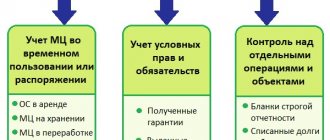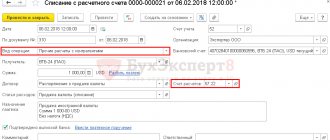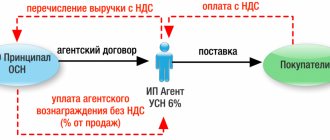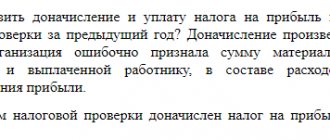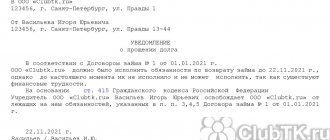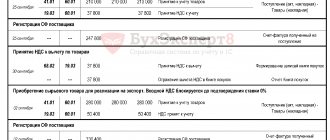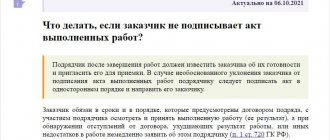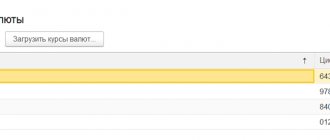What is a penalty?
A penalty is a sum of money paid by the debtor to the creditor in the event of violation or improper fulfillment of obligations under the contract (clause 1 of Article 329; clause 1 of Article 330 of the Civil Code of the Russian Federation). Collection of penalties is based on non-fulfillment of civil obligations (or their improper fulfillment) and is liability for violation of obligations under the contract. Penalties are not related to payment made in accordance with Article 162 of the Tax Code of the Russian Federation, and are not subject to VAT (Resolution of the Presidium of the Supreme Arbitration Court of the Russian Federation dated 02/05/2008 No. 11144/07, FAS Moscow District dated 04/25/2012 No. F05-3330/12 on the case No. A40-71490/2011, dated 12/01/2011 No. F05-12728/11, dated 03/11/2009 No. KA-A40/1255-09).
Is a fine subject to VAT: grounds for excluding fines and penalties from the base for calculating VAT
In 2008, a resolution was issued by the Presidium of the Supreme Arbitration Court of the Russian Federation (No. 11144 / 07), which recommended considering the amounts transferred by the buyer for violations of contract terms (fines, etc.) as a measure of liability for these violations (contractual obligations). In such a context, fines are not related to payment for purchased goods, do not fall within the scope of article one hundred sixty-two and are not subject to inclusion in the amounts for VAT withholding.
But the Ministry of Finance of the Russian Federation in a letter of 2015 (No. 03-07-11 / 64436) continues to emphasize the following point: if the penalties or fines specified in the contract do not really serve the purpose of forcing the buyer to fulfill the conditions, but in fact are part of the pricing policy, i.e. e. affect the final cost of the product for the buyer-client, then such fines are necessarily subject to VAT.
Is VAT charged on penalties for the taxpayer-seller?
If the amount of the penalty received by the seller from the buyer is one of the elements of forming the price of the contract, then when forming the tax base for VAT, tax inspectors will take this amount into account (Article 162 of the Tax Code of the Russian Federation, letter of the Ministry of Finance of the Russian Federation 08/19/2013 No. 3-07-11 /33756). If the penalty is not included in the formation of the contract price, but is a liability for violating the terms of fulfillment of obligations to pay for goods, then the tax authorities must act on the basis of the provisions of the Resolution of the Presidium of the Supreme Arbitration Court of the Russian Federation dated 02/05/2008 No. 11144/07, and VAT is not charged on the penalty.
Late fees and VAT: legal basis
Payments related to the sale of goods must be included in the VAT tax base, including payment for goods sold through the provision of financial assistance, making contributions to replenish special-purpose funds or to increase income (subclause 2, clause 1, article 162 of the Tax Code RF).
Moreover, if the debtor violates contractual obligations, then he is obliged to pay penalties to the creditor - in accordance with current legislation or specified in the contract (Article 330 of the Civil Code of the Russian Federation). In this regard, the question arises: are penalties subject to VAT? If yes, then in what cases?
ConsultantPlus experts explained in detail whether the amounts of penalties under the contract are subject to VAT. If you do not have access to the K+ system, get a trial online access for free.
Read more about penalties on our website:
- “Forfeit under a contract - procedure for calculation and collection”;
- “Reducing contractual penalties”;
- “Penalty for delay in fulfillment of obligations under the contract.”
Is VAT charged on penalties for the taxpayer-buyer?
The amounts of penalties received by the taxpayer-buyer under the agreement are not taken into account when calculating the tax base for VAT. This applies to penalties for violation of deadlines for the completion of work, provision of services or delivery of goods, for improper performance of work or violation of discipline in the performance of work. The provisions of paragraph 2 of Article 153 and paragraph 2 of paragraph 1 of Article 162 of the Tax Code of the Russian Federation do not apply to the taxpayer-buyer (letter of the Ministry of Finance of the Russian Federation dated April 12, 2013 No. 03-07-11/12363, letter of the Federal Tax Service of Russia dated August 9, 2011 No. AS-4-3/ [email protected] , letter of the Federal Tax Service of Russia for Moscow dated 02/07/2008 No. 19-11/11309, resolution of the Federal Antimonopoly Service of the Ural District dated 11/07/2007 No. Ф09-9025/07-С2). Thus, VAT is not charged on the amount of the penalty received by the seller from the buyer if this amount is an element of pricing under the contract, and is charged if the penalty is not one of the elements of pricing. For the taxpayer-buyer, VAT is not charged on the amount of the penalty.
Fines, penalties under the contract. To be or not to be VAT - that is the question?!
Quite often, when concluding contracts, the parties provide for penalties or penalties. This is also required to ensure proper provision for the fulfillment of mutual obligations, and also partly to compensate for potential damages or losses.
At the same time, such penalties (penalties) can apply both to the case of failure by the supplier (seller, performer) to fulfill its obligations under the contract, and to the other party - the buyer, customer.
As is known, the penalty
(fine, penalty) is a sum of money determined by law or contract, which
the debtor is obliged to pay to the creditor in the event of non-fulfillment or improper fulfillment of an obligation
, in particular in case of delay in fulfillment. This definition is given in paragraph 1 of Art. 330 of the Civil Code of the Russian Federation (hereinafter referred to as the Civil Code of the Russian Federation).
Accordingly, a completely legitimate question arises: Is the penalty (penalty) received by the party under the contract subject to VAT taxation? Is it necessary to calculate and pay VAT to the budget?
The answer is clear - NO, if it is received by the buyer or customer.
Both regulatory authorities and courts speak unanimously about this, citing subparagraph 2 of paragraph 1 of Article 162 of the Tax Code: payments for improper performance by the seller (supplier, performer) of contractual obligations are not related to payment for goods (work, services) sold.
For example, this is stated in letters from the Russian Ministry of Finance:
- dated 06/08/2015 No. 03-07-11/33051 in relation to funds in the form of penalties (fines, penalties) received by the buyer from the seller of goods (works, services) for improper performance by the seller of contractual obligations;
— dated 04/12/2013 No. 03-07-11/12363 regarding compensation for improper fulfillment of contractual obligations by the seller;
— dated 02.12.2008 No. 03-07-05/49, in case of failure by participants in a REPO transaction with securities to fulfill the second part of the REPO (failure to fulfill obligations to repurchase and sell securities), funds received by the seller and buyer of securities as compensation for failure to fulfill obligations on the sale and payment of securities;
— dated November 30, 2010 No. 03-07-08/342 in relation to compensation received by a Russian organization from a foreign entity in connection with its failure to fully comply with the terms of the contract for the supply of equipment imported into the territory of the Russian Federation;
- dated 07.10.2008 No. 03-03-06/4/67 in relation to funds received from the bank as interest on budget balances in bank accounts, from employees in compensation for overpayments of wages under the audit report and from sellers of goods ( works, services) for violation of the terms of delivery of goods (performance of works, provision of services) stipulated by state contracts;
- dated 10.10.2007 No. 03-07-11/475 in relation to the penalty received by the principal from the agent for termination of the agency agreement,
as well as in the Letter of the Federal Tax Service of the Russian Federation dated 08/09/2011 N AS-4-3 / [email protected] in connection with violation by counterparties (state customer (buyer) or supplier) of the terms of government contracts.
Arbitration practice also considers this issue positively for the taxpayer, for example:
— the company rightfully did not include in the VAT tax base amounts received from contractors in the form of compensation for damage caused during the execution of contracts (Resolution of the Federal Antimonopoly Service of the Moscow District dated January 26, 2010 No. KA-A40/15269-09-2-B in case No. A40 -78155/08-117-359);
- the penalty received by the buyer for failure to provide the cargo is not related to payment for goods sold, which means that VAT is not assessed (Resolution of the Federal Antimonopoly Service of the Ural District dated November 7, 2007 No. F09-9025/07-S2 in case No. A07-26534/06);
— amounts received from claims for cargo damage are not subject to VAT. Since, according to paragraph 2 of Art. 153, paragraphs. 2 p. 1 art. 162 of the Tax Code of the Russian Federation, these receipts are not related to settlements for payment for goods (work, services) sold; accordingly, they are not subject to VAT taxation (Resolution of the Federal Antimonopoly Service of the Moscow District dated February 12, 2013 in case No. A40-63043/12-91-362 ) and others.
But not everything is so simple in a situation where the buyer or customer is fined.
According to the official position of the regulatory authorities, the seller should not increase the VAT tax base by the amount of penalties (fines, penalties) received from the buyer in connection with late payment of goods (work, services)
.
This opinion was expressed in Letter of the Ministry of Finance of Russia dated 03/04/2013 No. 03-07-15/6333 (sent to the Federal Tax Service of Russia for information to lower tax authorities by Letter dated 04/03/2013 N ED-4-3/ [email protected] ) with reference to the Resolution Presidium of the Supreme Arbitration Court of the Russian Federation dated 02/05/2008 No. 11144/07, according to which the amounts of penalties received by the seller from the buyer are a measure of liability for violation of the terms of fulfillment of obligations under the contract. Consequently, they are not related to payment for goods within the meaning of Art. 162 of the Tax Code of the Russian Federation and VAT are not assessed.
Moreover, as noted further in the considered Letter of the Ministry of Finance of Russia dated March 4, 2013 No. 03-07-15/6333:
“At the same time, if the amounts received by sellers from buyers, stipulated by the terms of contracts in the form of a penalty (fine, penalty), are not essentially a penalty (fine, penalty) ensuring the fulfillment of obligations, but in fact relate to the element of pricing that provides for payment for goods (works, services)
, then such amounts are included in the tax base for value added tax on the basis of the above-mentioned norm of Article 162 of the Code.”
.
That is, it turns out that fines for late payment for goods are not an element of pricing, other fines may also be an element of pricing, but everything will depend on the interpretation of the specific terms of the contract and the situation.
It is curious that in what case sanctions can be considered an element of pricing, the official authorities do not explain.
We decided to analyze the clarifications issued (answers to taxpayers’ questions) that appeared after this Letter from the Ministry of Finance of Russia dated March 4, 2013 No. 03-07-15/6333 and present them here in an overview.
For example, in Letter No. 03-07-11/43854 dated July 27, 2016, the Russian Ministry of Finance noted that the amounts of penalties for non-consumption of the established volume of energy resources, not related to payment for services for their provision, are not taken into account when determining the VAT tax base. That is, the financial department allows the possibility of non-inclusion in the VAT tax base of amounts of penalties for violation of an obligation other than payment on time.
But the Russian Ministry of Finance also highlights cases in which penalties received by the seller from the buyer are included in the VAT tax base on the basis of paragraphs. 2 p. 1 art. 162 of the Tax Code of the Russian Federation. These are situations where such amounts are not a penalty (fine, penalty) ensuring the fulfillment of obligations, but actually relate to an element of pricing that involves payment for goods (work, services).
For example, the Russian Ministry of Finance includes fines received by a taxpayer providing cargo transportation services for excess downtime of vehicles as penalties that are subject to inclusion in the VAT tax base and are an element of pricing (Letter of the Russian Ministry of Finance dated April 1, 2014 No. 03-08 -05/14440).
And in another Letter, the Ministry of Finance includes the amounts associated with payment for services for the provision of wagons for the transportation of goods as funds that the organization providing such services receives for excess downtime of wagons (dated April 16, 2014 No. 03-07-08/17462).
The funds received by the seller from the buyer for providing a commercial loan in the form of installment payment for goods sold are funds associated with the payment for these goods. Therefore, the indicated amounts must be included by the seller in the tax base for value added tax (Letter of the Ministry of Finance of Russia dated August 19, 2013 No. 03-07-11/33756).
We also note that there are quite a large number of letters in which the Russian Ministry of Finance did not answer clearly YES or NO on specific situations: dated 10/05/2016 No. 03-07-11/57924, dated 11/30/2015 No. 03-07-14/69341, dated 09.11.2015 No. 03-07-11/64436, dated 30.10.2014 No. 03-03-06/1/54946.
We were unable to find any arbitration practice after the release of the analyzed Letter for analysis.
Thus, we can conclude that only the amounts of penalties (penalties) associated with violations of payment for goods, works, and services are not included in the VAT tax base.
In other cases, there always remains the risk that the tax authorities will interpret fines (penalties) received by the supplier (contractor, performer) from the buyer (customer) as related to payment for goods (work, services) and are an element of pricing.
For our part, we can assume that the attention of inspectors will be drawn to those sanctions (forfeits, penalties, fines), the amounts of which will be higher than usual or the basis for the accrual of which will differ from those generally accepted in business. This conclusion can be drawn, among other things, from the Letter of the Ministry of Finance of Russia dated November 30, 2015 No. 03-07-14/69341: “the qualification of compensation as funds related or not related to payment for goods (work, services) sold by the seller must be made in in each specific case, taking into account the terms of the relevant agreements depending on the specific economic situation"
.
Let's now look at a specific situation.
The company is a seller of its finished products. The company, as a supplier, entered into a supply agreement and included in it the following conditions obliging the buyer to make a sample of the manufactured goods (products):
1. If the Buyer does not purchase the minimum volume of Products agreed upon by the Parties in the calendar month specified in clause 3 of this Additional Agreement, then, upon receipt of a written request from the Supplier, the Buyer pays a penalty that compensates the Supplier for operating expenses incurred in connection with the downtime. The amount of the penalty will depend on the volume of Products that were underdelivered, and will be determined by the following formula, depending on the time period specified in clause 3 of this Additional Agreement:
For 2018-2019: [RUB] = [1200 tons – actual volume of Products delivered in a given month, tons] × 4271.98 RUB;
For 2020-2021: [RUB] = [1150 tons – actual volume of Products delivered in a given month, tons] × 4271.98 RUB;
For 2022: [RUB] = [1000 tons – actual volume of Products delivered in a given month, tons] × 4271.98 RUB;
For 2023: [RUB] = [900 tons – actual volume of Products delivered in a given month, tons] × 4271.98 RUB.
2. The penalty for the volume of Products not delivered monthly must be paid by the Buyer within 10 (ten) working days according to the UPD issued by the Supplier with the obligatory attachment of the calculation of the penalty (VAT is not assessed). In case of delay in payment of the penalty, interest is charged on the amount of the penalty in the amount of 0.1% (one tenth of a percent) for each day of delay until the full fulfillment of this obligation.
Having analyzed the situation and the above explanations, we came to the conclusion that the Company has a risk under the first point associated with the emergence of claims from tax authorities in the event of failure to include the amount of the penalty that compensates the supplier for the operating costs incurred to produce products in the agreed volume in the VAT tax base as element of pricing.
In particular, in the case under consideration, when assessing risks, the following questions also arise:
— whether there is interdependence with the supplier;
— how does the supplier explain the decrease in the minimum sample of products from two years to two years;
— someone else buys this kind of product from the supplier or it is manufactured exclusively for a specific order;
- what explains the use of a constant rate from year to year - 4271.98 rubles;
— is there a history of relationships with this supplier and a history of previous orders so that the forecast for non-sampling can be confirmed;
— whether in the future there will be a standard non-sampling of products and to what extent it will constitute a significant part in its purchase.
The construction of a line of defense will depend on how well-founded the answers are. In addition, a letter was given above regarding the non-selection of electricity, with a positive answer for our situation, that the amount of the fine in this case is not an element of pricing. You can also rely on it to build a line of defense by analogy. But from this letter it is not entirely clear the logical chain on which the position of the supervisory authority was built.
Let's return to our example.
Here we pay attention to the second condition of the contract with the buyer. We believe that it will not be considered as an element of pricing and should not be included in the VAT tax base since it is associated with payment control.
When VAT is charged on the principal amount
According to tax legislation, VAT is charged on amounts of money related to payment for goods, services or work performed by the taxpayer. These amounts also include amounts received by the taxpayer from the buyer by court decision for non-compliance with obligations under the contract in the form of interest for the use of other people's funds (Letter of the Department of Tax and Customs Tariff Policy of the Ministry of Finance of the Russian Federation dated September 11, 2009 N 03-07-11 /222 “On the taxation of VAT on amounts of money received by the taxpayer from buyers of goods (work, services) on the basis of an arbitration court decision for violation of contractual obligations in the form of interest for the use of someone else’s money”).
Is a fine subject to VAT: grounds for including fines in the base for calculating VAT
Until 2013, the Russian Ministry of Finance conveyed the following point of view: penalties, penalties that the seller received from the buyer for various violations of the contract for the delivery, production, and payment of goods are directly linked to payment for the specified goods or services. Referring to subparagraph two of the first paragraph one hundred and sixty-second of article of the Tax Code and paragraph two of the one hundred and fifty-third article, the ministry demanded that the amounts received in the form of penalties be taken into account in calculating the tax base for VAT. After this period, tax organizations stopped requiring that fines be included in amounts for calculating VAT, based on established judicial practice.
How much should the penalty be calculated: with VAT or without VAT?
According to Resolution of the Presidium No. 5451/09, the penalty is charged on the entire amount of the debt, including VAT. This decision had two reasons: a). VAT, highlighted in the price, is not actually a tax, but part of the price; b). companies pay VAT on shipment, i.e. the lender must reflect input VAT at the time the goods are shipped and the invoice is issued, and not at the time the funds are actually received; Thus, VAT is paid to the budget from the creditor’s funds, and failure to pay the debt on time leads to the inability to cover this expense in a timely manner. This means that the creditor has a civil interest in repaying the entire amount of the debt, including VAT, as soon as possible. In the Resolution of the Presidium of the Supreme Arbitration Court of the Russian Federation No. 5382/12, a different decision was made (the penalty was to be calculated on the amount of the debt without VAT). Despite the fact that the lower courts were guided by Resolution No. 5451/09 when making their decision, the Supreme Arbitration Court did not accept their arguments, justifying its decision with the following arguments: a). in the case at hand there was a violation of transportation obligations, not financial obligations; b). Since we are talking about railway transportation, which has special regulation, the payment for transportation, for which, in accordance with the contract, penalties must be charged, is expressed in the form of a tariff that does not include VAT. Therefore, VAT in this case is not an element of the price, but is added to it. This precedent is not applied in judicial practice, therefore, when deciding to charge a penalty on the amount of the debt, one should be guided by Resolution No. 5451/09 and charge a penalty on the entire amount of the debt, including VAT. Representation in the Arbitration Court
Collection procedure
Fulfillment of the terms of interaction, compliance with the obligations assumed in accordance with the contract is the main obligation of the party to the contract, otherwise established consequences, including sanctions, are possible. The procedure for collecting a penalty under a supply or service agreement is uniform; for this it is necessary:
- Calculate the amount of the penalty.
- Follow the claim procedure for resolving the dispute (draft a claim for collection and send it to the debtor).
- Go to court with a claim to collect the debt.
- Justify the requirements and provide evidence of your arguments.
The settlement mechanism is determined in accordance with law or agreement. The period for which the penalty is collected is also determined in accordance with the agreement. Usually it is collected for the entire period of non-performance or improper performance until the court makes a decision. You cannot ask the court to make a decision on the collection of a sanction on the day of actual execution (as is the case with interest under Article 394 of the Civil Code of the Russian Federation).
Currently, judicial practice proceeds from the fact that a one-time recovery of penalties and interest under Art. 395 for using someone else's money is unacceptable. The fact is that the courts considered the financial burden on the defendant to be excessive, since when applying both of these measures of liability, it is not necessary to prove the size and fact of losses.
Read more: “Collection of penalties”
Accrual period
The penalty begins to accrue from the moment the delay begins, that is, from the next day after the day when the obligation under the contract should have been fulfilled. The moment of determining the end of the collection period raises many questions; it all depends on the legal relations that have developed between the parties. As a general rule, a penalty is accrued until the full fulfillment of obligations under the contract by the person who violated the terms of the agreement, regardless of the moment of termination of the agreement.
If it is determined at the legislative level or separately agreed upon by the parties that the sanction is collected from the moment of termination of the agreement or contract, the penalty is collected until this moment. Plenum of the Supreme Court No. 7 of March 24, 2016 connects the moment of termination of collection with the moment of termination of the main obligation under the contract.
If, for example, the parties have agreed that their contractual obligations cease completely upon expiration of the contract, the sanctions will be calculated based on the day that is the expiration date of the agreement. Judicial practice (Resolution of the Presidium of the Supreme Arbitration Court of the Russian Federation in case No. 8171/13, which was adopted on November 12, 2013) indicates that termination of obligations to return the penalty accrued under the contract is also permissible through compensation, novation or debt forgiveness.
